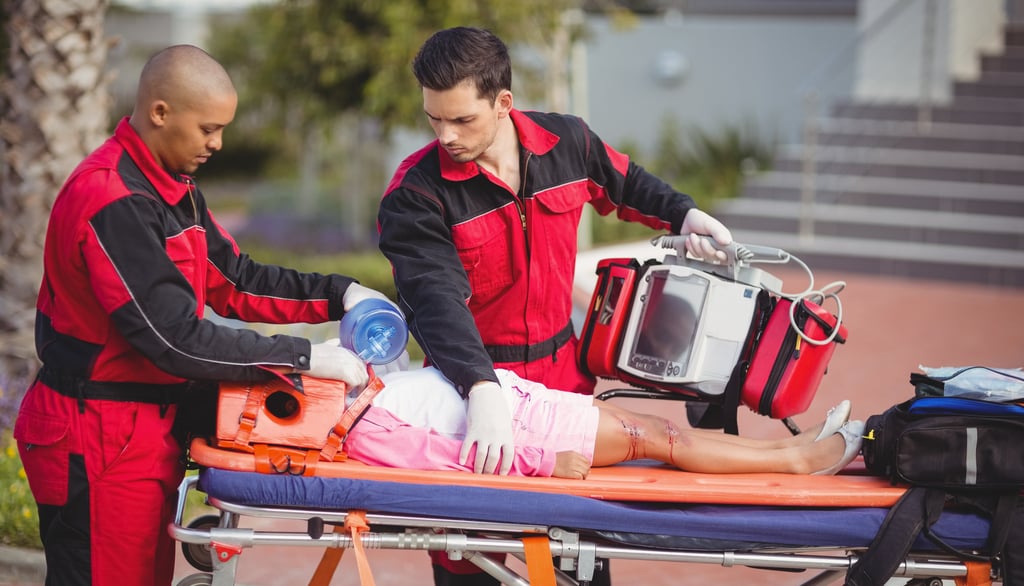Basic First Responder skills that one should know
Basic First Aid Skills Everyone Should Know


As a responsible adult, there are certain life skills you need to have in your toolbox. Basic first aid knowledge is one of the most important. You never know when an emergency will strike and being able to provide the right initial care could save a life.
Here are the most essential first aid skills everyone should learn:
Check for consciousness: The first step in any emergency is checking if the person is conscious. Gently shake their shoulders and ask if they are okay in a loud voice. If there's no response, call 911 immediately.
Perform CPR: Cardiopulmonary resuscitation (CPR) involves chest compressions and rescue breaths to keep oxygenated blood flowing to the brain and heart until medical help arrives. Take a CPR course to learn the proper technique and how to use an AED (automated external defibrillator).
Stop severe bleeding: Apply direct pressure to the wound using a clean cloth or your hand. Elevate the injured body part above the heart to reduce blood flow. Apply a tourniquet as a last resort to stop life-threatening bleeding.
Treat for shock: Shock is a life-threatening condition where the body doesn't Treat for shock: Shock is a life-threatening condition where the body doesn't get enough blood flow. Signs include pale skin, fast breathing, confusion and anxiety. Have the person lie down with legs raised. Cover them with a blanket to keep warm. Reassure them and seek immediate medical attention.
Splint a broken bone: Immobilize the affected area to prevent further injury. Use a rigid material like a board or rolled magazine as a splint. Secure it above and below the fracture site with a bandage or clothing.
Deal with burns: For minor burns, hold the affected area under cool running water for at least 10 minutes. Avoid breaking blisters. Cover the burn loosely with a clean dressing. Call 112 for severe burns that involve the hands, face, feet, genitals or that cover a large area of the body.
These basic first aid skills will give you the confidence to respond effectively in an emergency situation until professional medical help arrives. Consider taking a first aid course to learn proper techniques and gain hands-on practice. You'll be prepared to assist with injuries or illnesses like heart attacks, choking, allergic reactions, bites and stings, asthma attacks and more. Having a well-stocked first aid kit at home and in your vehicle is also essential. At a minimum, it should include:
Assorted sterile gauze pads in different sizes
Adhesive bandages (Band-Aids) of various widths
Medical tape
Scissors
Tweezers
Latex-free gloves
Antiseptic wipes or spray
Pain relievers like acetaminophen and ibuprofen
Antihistamines for allergic reactions
Cold pack
Emergency blanket
CPR mask or face shield
Remember to check expiration dates and restock your first aid kit regularly. Also, consider taking a first responder course to gain skills like how to assess injuries, stabilize neck or spine injuries, perform triage in a mass casualty situation and more.
In summary, basic first aid knowledge and supplies can make a world of difference when seconds count in an emergency. Take the time to learn CPR, how to stop bleeding, treat for shock and splint fractures. Build a well-stocked first aid kit and refresh your skills regularly. You'll be prepared to assist with common injuries and illnesses until professional help arrives.
